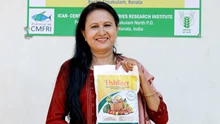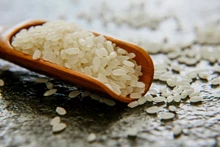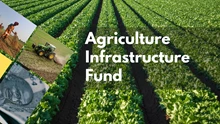
Whilst the humble Indian farmer may be viewed by many, as merely the producer of the food that is laid out on their tables each day, the role of farmers runs far deeper - far beyond feeding the 1.4 billion people who call India home.
We as a nation need to recognise, value and respect our farmers as pivotal stakeholders in the future sustainability of the country – as combatants of climate change and the all-pervasive poverty that persists; and as gatekeepers in ensuring the continued food security that we all so heavily rely upon. Farmers, often overlooked, are perhaps the most important stakeholder - pivotal to our survival, sustainability and growth as a nation.
However, in order to play these critical roles, and earn a living in the process, our farmers require support and handholding – and this is where civil society, drivers of CSR and the Government, can step forward.
Agriculture – The Backbone of the Indian Economy
Despite the fact that the role of agriculture to national GDP has been declining globally, in India it firmly remains the backbone of the economy - contributing 17% to GDP and employing approximately 53% of the total population and 70% of the rural population.
Therefore, a dip in the agricultural sector's growth results in income loss for the majority of the Indian population - inevitably having an adverse impact on private consumption, and leading to a significant contraction of the overall Indian economy.
Additionally, despite the impressive growth of other industries in the economy, agriculture holds strong because many other industries rely on agriculture for their raw materials. When this important ‘cog in the engine’ falters, the ripple effect is significant across employment, related industries and even exports and the strength of our currency.
So whilst many urban dwellers may find no ‘connect’ with farmers – they may in fact feel the harsh impacts of things, if and when the agricultural sector struggles.
Farmers – Crucial to Poverty Reduction
Agriculture continues to be the key to reducing the poverty that continues to plague the country. According to a 2010 study, agriculture is even more important than previously believed for lifting people out of poverty. Covering 80 countries over a period of 20 years, the study showed that growth within agriculture in low-income countries can be five times as effective as growth within other sectors in terms of reducing poverty among those who are worst off.
At the same time there are a number of challenges to be faced by farmers - a continually growing global population has placed new demands on farmers for food, fuel and raw materials, and with the depletion of water supplies, soil nutrients and biodiversity, there is a desperate need to switch to more sustainable and climate-smart farming practices.
Farmers – at the Heart of Climate Change!
And lastly, but perhaps most importantly, farmers play a central role in either contributing to, or combatting climate change – one of the most pressing challenges we face today.
Agriculture throughout the world has a direct and indirect impact on practically all the major environmental problems we face, from loss of biological diversity and climate change to water shortages and air pollution.
Whilst many agricultural practices used by farmers contribute to the problem, there is hope in looking at the other side of the coin – farmers can therefore be the key to turning things around.
But in order to do that, they require education, training, support and handholding. And perhaps most importantly, they require us to recognise them as critical stakeholders for the future of the country.
The Need of the Hour – Supporting our Farmers
Be it in helping farmers increase production, manage their precious resources (like soil and water), or navigate markets to optimise their profits, the need of the hour is to keep farmers educated and abreast of the various methods and technologies that not only make agriculture more profitable and sustainable, but support them as warriors at the cold face of tackling climate change, poverty and the food security of the nation.
Small landholder farmers in rural areas are often poorly organised and marginalised. This limits their political influence and their capacity to optimise their businesses as they work in isolation. By coming together in the form of Farmer Producer Companies, Cooperatives and other types of member organisations, they become stronger financially. They find a voice. These groups provide farmers with access to new markets and give them a stronger bargaining position in the market. The organisation of farmers also opens up opportunities for learning, training and dialogue.
Conclusion
Now more than ever, we need our farmers. We need them strong, educated and respected. Whilst much work is being done by civil society, CSR bodies and Governments, the need remains great and there is still so much more to be done.
Perhaps the first thing we can all do, is to pay tribute to ‘our farmers’ - for the incredible role they are playing, and the roles they are yet to play, in keeping the engines of India churning, tackling our most pressing problems and providing us with a bright and prosperous future.
Written by Chandrakant Kumbhani, Vice President, Community Development Initiatives, Ambuja Foundation










